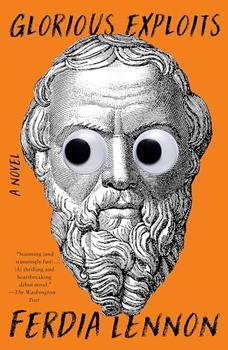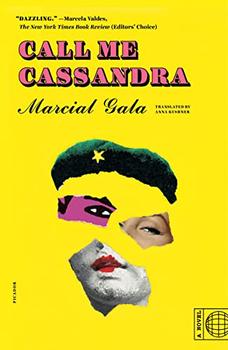Summary | Excerpt | Reviews | Beyond the book | Read-Alikes | Genres & Themes | Author Bio

A Novel
by Ferdia LennonAn utterly original celebration of that which binds humanity across battle lines and history.
On the island of Sicily amid the Peloponnesian War, the Syracusans have figured out what to do with the surviving Athenians who had the gall to invade their city: they've herded the sorry prisoners of war into a rock quarry and left them to rot. Looking for a way to pass the time, Lampo and Gelon, two unemployed potters with a soft spot for poetry and drink, head down into the quarry to feed the Athenians if, and only if, they can manage a few choice lines from their great playwright Euripides.
Before long, the two mates hatch a plan to direct a full-blown production of Medea. After all, you can hate the people but love their art. But as opening night approaches, what started as a lark quickly sets in motion a series of extraordinary events, and our wayward heroes begin to realize that staging a play can be as dangerous as fighting a war, with all sorts of risks to life, limb, and friendship.
Told in a contemporary Irish voice and as riotously funny as it is deeply moving, Glorious Exploits is an unforgettable ode to the power of art in a time of war, brotherhood in a time of enmity, and human will throughout the ages.
The staging of an anti-war milestone like The Trojan Women with prisoners of war infuriates many, including characters with whom Gelon and Lampo have previously clashed. As the theatrical production progresses, Lennon builds palpable intrigue that culminates in the performance in the quarries, the climax. The novel leaves behind a comforting warmth, suggesting that in a world overshadowed by conflict and cruelty, stories can still offer hope and purpose. The question raised by the narrator lingers: Was it Euripides they were saving after all?..continued
Full Review
 (657 words)
(657 words)
(Reviewed by Alicia Calvo Hernández).
While it's impossible to determine for sure how ancient Greeks sounded, Ferdia Lennon asserts that, despite what one hears and reads in many works depicting this era, they didn't echo the tones of Oxford scholars. In his novel Glorious Exploits, set in 5th century BCE Sicily, the narrator Lampo converses in a contemporary Hiberno-English, a term that encompasses the dialects of English spoken in Ireland that retain grammatical structures, phonology, and vocabulary derived from Gaelic.
Until the 12th century, Irish Gaelic stood as the sole language of Ireland. The influx of Anglo-Normans introduced Old English to Dublin, yet Gaelic maintained its supremacy until the Tudor conquest in the 16th century. Following this, English ascended to ...

If you liked Glorious Exploits, try these:

by M.T. Anderson
Published 2024
From the award-winning and bestselling author of Feed comes a raucous and slyly funny adult fiction debut, about the quest to steal the mystical bones of a long-dead saint

by Marcial Gala
Published 2023
From Marcial Gala, the author of the award-winning The Black Cathedral, Call Me Cassandra is a darkly magical tale of a haunted young dreamer, born in the wrong body and time, who believes himself to be a doomed prophetess from ancient Greek mythology.
Every good journalist has a novel in him - which is an excellent place for it.
Click Here to find out who said this, as well as discovering other famous literary quotes!